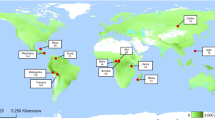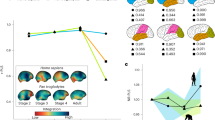Abstract
Human childhood and adolescence is the period in which adult cognitive competences (including those that create the unique cooperativeness of humans) are acquired. It is also a period when neural development puts a juvenile’s survival at risk due to the high vulnerability of their brain to energy shortage. The brain of a 4 year-old human uses ≈50% of its total energy expenditure (TEE) (cf. adult ≈12%). This brain expensiveness is due to (1) the brain making up ≈6% of a 4 year-old body compared to 2% in an adult, and (2) increased energy metabolism that is ≈100% greater in the gray matter of a child than in an adult (a result of the extra costs of synaptic neuromaturation). The high absolute number of neurons in the human brain requires as part of learning a prolonged neurodevelopment. This refines inter- and intraarea neural networks so they become structured with economical “small world” connectivity attributes (such as hub organization and high cross-brain differentiation/integration). Once acquired, this connectivity enables highly complex adult cognitive capacities. Humans evolved as hunter-gatherers. Contemporary hunter-gatherers (and it is also likely Middle Paleolithic ones) pool high energy foods in an egalitarian manner that reliably supported mothers and juveniles with high energy intake. This type of sharing unique to humans protects against energy shortage happening to the immature brain. This cooperation that protects neuromaturation arises from adults having the capacity to communicate and evaluate social reputation, cognitive skills that exist as a result of extended neuromaturation. Human biology is therefore characterized by a presently overlooked bioenergetic-cognition loop (called here the “HEBE ring”) by which extended neuromaturation creates the cooperative abilities in adults that support juveniles through the potentially vulnerable period of the neurodevelopment needed to become such adults.
Similar content being viewed by others
Article PDF
Author information
Authors and Affiliations
Rights and permissions
About this article
Cite this article
Skoyles, J. Human neuromaturation, juvenile extreme energy liability, and adult cognition/cooperation . Nat Prec (2012). https://doi.org/10.1038/npre.2012.7096.1
Received:
Accepted:
Published:
DOI: https://doi.org/10.1038/npre.2012.7096.1



